ليبيا تحت الوصاية الدولية ليبيا تحت الوصاية الدولية لمن لم يسمع ياهو ليبيا تحت الوصايا الدولية .......
+2
بلد الطيوب
سرت الصمود
6 مشترك
صفحة 1 من اصل 1
 ليبيا تحت الوصاية الدولية ليبيا تحت الوصاية الدولية لمن لم يسمع ياهو ليبيا تحت الوصايا الدولية .......
ليبيا تحت الوصاية الدولية ليبيا تحت الوصاية الدولية لمن لم يسمع ياهو ليبيا تحت الوصايا الدولية .......
تأملنا خيرا بانتفاض بنغازي ضد المليشيات وظنناها صحوة شعب وبداية الطريق الصحيح ولكنها غفوة ! إلى أن عثرنا على تقرير القائد الاعلى لمن يقود ليبيا وعبثا تحاول ان تعرف من هو !! ولكن حتما إنه صناعة أجنبية (مضمون) كعادتنا نرمي بالمحلي ونستبدله بالمستورد. والمنشور يوم 14/09 اي قبل أحداث بنغازي والجنوب !!
تطبيقا لتعليمات منظمة الأزمات الدولية بروكسل
اهم النقاط الواردة في التوصيات
إلى الحكومة الليبية و الموتمر الوطني
1- إنشاء وحدة أزمة تحت إمرة رئيس الوزراء و وزيري الدفاع و الداخلية و رئيس الأركان و آمر درع ليبيا و رئيس اللجنة الأمنية
و هذه الوحدة مهمته:
- الاستجابة للحالات الطارئة مثل نزاع مسلح او اي خطورة مسلحة
- فرض سلطة الحكومة على المناطق المعلنة أنها مناطق حرب
2- إنشاء قوة تكون تحت إمرة وحدة الأزمة وتحت إمرة رئيس الوزراء و من معه من اعضاء السابق ذكرهم في النقطة السابقة ومن مهامها:
- إرسال ممثلين عن الوزراء لمراقبة سير مباحثات المفاوضات و فتح خط مباشر مع اعضاء وحدة الازمة و اعضاء الموتمر الوطني
- التأكد من أن تكون الاتفاقيات مكتوبة و صريحة لكي تطبق مراقبة سير الإتفاقية والمعاهدة من خلال النظام القضائي أو الوزارات المعنة والتأكد من أن أعيان ووجهاء المنطقة على علم كامل بما يحدث.
التعليمات الموجهة إلى رئاسة الحكومة و أعيان و وجهاء و حكماء القبائل
1- التأكد من تفعيل مناطق مراقبة فعّالة لمناطق الصراع او النزاع المسلح وإرسال تقارير دورية او التنبيه المبكر عند وجود بوادر نزاع مسلح
2- التشاور مع كل الاطراف و تحويل الطلبات و الاحتياجات الى مجلس الحكماء عندما يكون النزاع بشأن طلبات او احتياجات
3- الإستعانة بخبراء دوليين في حل النزاعات عندما يستعصي الامر (عارفينهم مايخلصوش بقرة من طين)
التعليمات الموجهى لوزير الدفاع و رئيس الأركان
1- تعيين ضباط لكي يوفروا اتصال مباشر بين رئاسة الأركان و قوات درع ليبيا و اللجنة الأمنية العليا في مناطق النزاع.
2- إدراج أعضاء قوات درع ليبيا في البرامج التدريبية المقدمة من المجتمع الدولي طالما كانت عقود عملهم سارية المفعول.
التعليمات الموجهة لقوات درع ليبيا و اللجنة الأمنية العليا
1- التعاون مع وحدة إدارة الأزمة فيما يخص إحلال الامن و السيطرة وتنفيذ عمليات التسوية السلمية في مناطق النزاع
ثم الجزئية الخاصة بمفوضية الامم المتحدة و الاتحاد الاوروبي في ليبيا
1- حثهم على التعاون مع الحكومة في إرساء الامن و إرسال مراقبين إلخ إلخ
2- مساعدة الدولة في التركيز و تقييم قوات درع ليبيا و حرس الحدود و كل القوات المشتركة في هذه اللجنة من ناحية مدي فاعليتها و أدائها و جاهزيتها و مدى التسليح و الاعضاء المنتسبين ( الانتماء القبلي او العرقي ) و علاقاتهم بالمجموعات المسلحة في المناطق المعنية ( باش كان ماداروش الواجب الماما تعاقبهم)
جزئية موجهه لوزارة الدفاع
1- تعليمات تقضي بإنشاء فرع جديد في القوات المسلحة تحت إشراف ضباط مختارين بدقة ولا يتبعون اي تيار سياسي (المهم مش أزلام قاعدة) و مقاتلين مدربين تدريب جيد من اعضاء درع ليبيا (وين بنلقوهم؟ إلا لو استوردناهم)
2- توفير حوافز و راتب تقاعدي للضباط الحاليين .
الجزئية الخاصة بوزارة الداخلية (عبعال و جماعته)
1- إنشاء قوة الدرك (مش عاجبهم اسم شرطة) ومهامها شبيهة بالجيش لإحلال الامن و مكافحة التهريب و مراقبة أنشطة المجموعات المسلحة
2- إنشاء قواعد و معسكرات في مناطق مختلفة و تكليف الوحدات ذات الكفأة لتحديات مختلفة في مناطق النزاع
إنهاء عمل اللجنة الأمنية العليا و دمج منتسبيها في القوة الجديدة
الجزئية خاصة بقوات درع ليبيا و اللجنة الأمنية العليا و تجمع سرايا الثوار
اختيار ضباط و عناصر أكفاء لتنسيبهم الى قوات الدرك ( الشرطة ) و القوات المسلحة الجديدة
الجزئية الاخيرة موجهه الى مفوضية الامم المتحدة قي ليبيا و الاتحاد الاوروبي
و تنص على التأكد من انشاء الدرك ليحل محل اللجنة الأمنية العليا و انشاء الفرع المستحدث في الجيش ليحل محل قوات درع ليبيا ( باش الماما تتأكد من ان بناتها داروا الواجب و نحي من اللحية و حط في الشارب).
طرابلس/بروكسل 14/09/20122
وعــــــــــــــــــاشت ليبيا (حرة) تحت الوصايا السامية الاجنبية خانعة ذليلة مستباحة الارض والعرض

سرت الصمود-

- الجنس :

عدد المساهمات : 163
نقاط : 9145
تاريخ التسجيل : 20/05/2012
 رد: ليبيا تحت الوصاية الدولية ليبيا تحت الوصاية الدولية لمن لم يسمع ياهو ليبيا تحت الوصايا الدولية .......
رد: ليبيا تحت الوصاية الدولية ليبيا تحت الوصاية الدولية لمن لم يسمع ياهو ليبيا تحت الوصايا الدولية .......
عاشت ليبيا خاشة بعضها
لين يجوها خلاصين وحلها
لين يجوها خلاصين وحلها

بلد الطيوب-

- الجنس :

عدد المساهمات : 10027
نقاط : 19432
تاريخ التسجيل : 22/12/2011
. :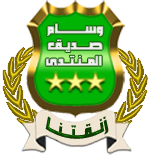
. :
 رد: ليبيا تحت الوصاية الدولية ليبيا تحت الوصاية الدولية لمن لم يسمع ياهو ليبيا تحت الوصايا الدولية .......
رد: ليبيا تحت الوصاية الدولية ليبيا تحت الوصاية الدولية لمن لم يسمع ياهو ليبيا تحت الوصايا الدولية .......

بلد الطيوب كتب:عاشت ليبيا خاشة بعضها
لين يجوها خلاصين وحلها

بنت الجبهه-

- الجنس :

عدد المساهمات : 2597
نقاط : 12740
تاريخ التسجيل : 21/11/2011
 رد: ليبيا تحت الوصاية الدولية ليبيا تحت الوصاية الدولية لمن لم يسمع ياهو ليبيا تحت الوصايا الدولية .......
رد: ليبيا تحت الوصاية الدولية ليبيا تحت الوصاية الدولية لمن لم يسمع ياهو ليبيا تحت الوصايا الدولية .......
حسبنا الله ونعم الوكيل

نتنفس من الأخضر-

- الجنس :

عدد المساهمات : 23128
نقاط : 34883
تاريخ التسجيل : 16/09/2011
. :
. :
. :
بطاقة الشخصية
زنقتنا: خلاص الليبيين كبودها درهت
 رد: ليبيا تحت الوصاية الدولية ليبيا تحت الوصاية الدولية لمن لم يسمع ياهو ليبيا تحت الوصايا الدولية .......
رد: ليبيا تحت الوصاية الدولية ليبيا تحت الوصاية الدولية لمن لم يسمع ياهو ليبيا تحت الوصايا الدولية .......
هذا نص التقرير الذي تم ترجمته :
Divided We Stand: Libya’s Enduring Conflicts
Middle East/North Africa Report N°13014 Sep 2012
EXECUTIVE SUMMARY AND RECOMMENDATIONS
The 11 September killing of the U.S. ambassador and three of his colleagues is a stark reminder of Libya’s security challenges. It also should serve as a wake-up call. There is, of course, more than one way to look at the country today: as one of the more encouraging Arab uprisings, recovering faster than expected; or as a country of regions and localities pulling in different directions, beset by intercommunal strife and where well-armed groups freely roam. Evidence exists for both: successful elections on one hand, violent attacks on the other. In truth, the most and the least promising features of post-Qadhafi Libya stem from a single reality. Because the country lacks a fully functioning state, effective army or police, local actors – notables, civilian and military councils, revolutionary brigades – have stepped in to provide safety, mediate disputes and impose ceasefires. It will not be easy and will have to be done gingerly, but it is past time to reverse the tide, reform army and police and establish structures of a functioning state that can ensure implementation of ceasefire agreements and tackle root causes of conflict.
Colonel Qadhafi’s bloody end and the collapse of Libya’s police and armed forces left in its wake an armed population with 42 years worth of pent-up grievances. Qadhafi’s longstanding divide-and-rule strategy set communities against one other, each vying for a share of resources and the regime’s favour. Some towns grew wealthy thanks to connections with the ruling elite; others suffered badly. Meanwhile, the security apparatus at once fomented, manipulated and managed intra-communal conflicts. Once the lid was removed, there was every reason to fear a free-for-all, as the myriad of armed groups that proliferated during the rebellion sought material advantage, political influence or, more simply, revenge. This was all the more so given the security vacuum produced by the regime’s precipitous fall.
A measure of chaos ensued, but up to a point only. Communal clashes erupted across the nation both during and after the 2011 conflict. Tensions that had long been left simmering on the back burner came to a boil, aggravated by the diverging positions various communities took vis-à-vis Qadhafi’s regime. That most of the fighting ended relatively quickly owes in no small measure to the efforts of local leaders, revolutionary brigades and the variety of civilian and military councils that took it upon themselves to keep the country whole. The ad hoc security patchwork registered significant and even surprising success. But it is no model; even as it manages to contain conflicts, it simultaneously fuels them. Some armed groups cannot resist the temptation to target foes and settle scores; battle for political and economic influence; evade accountability; and entrench geographic and community rivalries.
Until now, central authorities have acted chiefly as bystanders, in effect subcontracting security to largely autonomous armed groups. They had a reason: the army and police were in disarray, suffering from a deficit in personnel and equipment; officers and soldiers had either defected, fled, been killed or jailed. The rebels who rose up against Qadhafi were much better armed and – both suspicious of remnants of the old regime and pleased with their newfound power – unwilling to either surrender their autonomy or come under state control. Yet, it would be wrong to see the parallel military and police forces that emerged as having done so against the central authorities’ wishes. Rather, and although they were set up by revolutionary brigades themselves, the Libyan Shield Forces and Supreme Security Committee – the former operating parallel to the army, the latter to the police – were authorised and encouraged to take action by the ruling National Transitional Council, which viewed them as auxiliary forces without which the state simply could not secure the country.
Just as armed groups physically have kept warring parties apart, so have local notables led negotiations designed to achieve longer-lasting ceasefires. Appealing to the higher ideals of Libyan identity and Islam and resorting to social pressure as well as customary law, they have proved remarkably effective mediators.
However, none of this offers a sustainable solution. Truces are fragile, local conflicts frozen rather than durably resolved. In stepping into the breach, local notables and armed groups have done what the government could not. But effective implementation of ceasefire agreements depends in large part on an impartial authority capable of providing services and enforcing decisions. The involvement of revolutionary brigades and local armed groups in efforts to end hostilities blurs the line separating neutral mediation from partisan meddling. In some instances, their attempts to simultaneously play the role of army, police, mediator, judge and jury have helped revive old communal hostilities or competition for control over smuggling routes. The hope is that the central state can set up truly national forces equipped to deal with local disputes, notably a gendarmerie and elite auxiliary corps within the army. Until then, reliance on revolutionary brigades and local armed forces will continue to be an uncertain wager.
Perhaps most serious is the fact that, in the absence of a strong state, agreements mostly have remained dead letters. Disputes are rooted in competing claims over land, property and power that pre-existed Qadhafi and were first exacerbated by his regime’s clientelism and patronage networks, next by communities’ varying positions during the uprising, and finally by acts of revenge in its aftermath. To resolve them requires clear, written understandings, government follow-up, genuine enforcement and accountability. Too, it necessitates proper policing of borders; fair determination of land ownership where the old regime resorted to confiscation; and some form of transitional justice. All are sorely lacking. Although local notables negotiate agreements, these are seldom unambiguous, committed to paper or coordinated with central authorities. Without an effective government, strong state institutions or police force, follow-through is implausible. The judicial system is overwhelmed and the establishment of a justice and reconciliation process awaits. Hard-earned reconciliation agreements founder.
There is much to celebrate in post-Qadhafi Libya but also reason to worry. The battle between central government and armed groups is not yet won, yet of late the latter have been acting as if they enjoyed the upper hand. If steps are not swiftly taken, reversing this trend is only going to get harder – and what has been a relatively good news story could turn depressingly sour.
RECOMMENDATIONS
To address immediate security needs
To the Government of Libya and the General National Congress (GNC):
1. Set up an interim Crisis Management Unit comprising the prime minister, interior minister, defence minister, and the chief of staff of the armed forces, as well as the heads of the Libyan Shield Forces and Supreme Security Committee or their successors, charged with:
a) coordinating emergency responses to communal conflicts and other armed threats;
b) overseeing governance of areas of the country that are declared “military zones”; and
c) authorising a special inter-ministerial task force answering to the prime minister to implement any decisions related to peace settlements or extraordinary governance issues arising within “military zones”.
2. Create a special inter-ministerial task force answering to the prime minister, with representatives from the interior and defence ministries, that would:
a) send representatives from the aforementioned ministries to councils of notables to observe peace negotiations and operate a direct line of communication to relevant ministers and GNC representatives during these;
b) ensure peace agreements are written and specific enough to be implemented; and
c) monitor and oversee implementation of peace settlements through the justice system or relevant ministries and ensure local notables and affected communities are aware of what is being done.
To the Government of Libya and social and tribal leaders (hukama’), notables, prominent personalities and family heads (‘a’yan and wujaha’) participating in reconciliation councils (lijan al-hukama’):
3. Ensure effective and coordinated monitoring of conflict zones, reporting back to each other and to the inter-ministerial task force on early warning signs of possible renewed conflict.
4. Consult with all relevant parties as to the feasibility of implementation when considering demands presented to reconciliation councils.
5. Commit peace settlements to writing.
6. Seek the support of international technical experts in conflict resolution, where appropriate.
To the Defence Ministry, including the Chief of Staff of the Libyan Armed Forces:
7. Appoint observers answering directly to the armed forces chief of staff to liaise with the Libyan Shield Forces, border guard units and military councils in conflict zones.
8. Include, for as long as their contracts with the government are active, the Libyan Shield Forces in non-combat-related training programs provided by the international community.
To the Libyan Shield Forces, Supreme Security Committee and regional coalitions of revolutionary brigades:
9. Support the work of the Crisis Management Unit and the inter-ministerial task force dedicated to implementing peace settlements in conflict zones.
To the UN Support Mission in Libya (UNSMIL) and the European Union:
10. Carry out, with the government’s assent and cooperation, an assessment of the army, Libyan Shield Forces and border guard units in military zones, focusing on their performance; status and origins of their weapons stocks; recruitment from, as well as relations with local armed groups and communities; and border management activities.
11. Task observation missions to monitor the progress and implementation of ceasefire agreements in communal conflict areas.
To address longer-term institutional security issues
To the Defence Ministry, including the Chief of Staff of the Libyan Armed Forces:
12. Create a new auxiliary corps within the army in charge of future internal deployments to military zones, commanded by well-vetted, politically unaffiliated military officers and comprising thoroughly-trained fighters from the Libyan Shield Forces and army.
13. Provide incentives for the retirement of existing senior military staff.
To the Interior Ministry:
14. Create a new gendarmerie that will assume responsibility from the army as well as local councils for front line policing duties, including monitoring activities of armed groups, controlling narcotics flows and combating other illicit activities.
15. Form units gradually on a geographically mixed basis and assign such units with a good track record to more challenging conflict areas.
16. Close the Supreme Security Committee, phasing its recruits – subject to the satisfactory completion of training – into the new gendarmerie force.
To the Libyan Shield Forces, Supreme Security Committee and regional coalitions of revolutionary brigades:
17. Cooperate in selecting appropriate officers and fighters for inclusion in a new army corps and gendarmerie, preparing unit commanders for eventual integration.
To the UN Support Mission in Libya (UNSMIL) and the European Union:
18. Support the creation of a gendarmerie, replacing the Supreme Security Committee, and of a new auxiliary force within the army, replacing the Libyan Shield Forces.
Tripoli/Brussels, 14 September 2012
Divided We Stand: Libya’s Enduring Conflicts
Middle East/North Africa Report N°13014 Sep 2012
EXECUTIVE SUMMARY AND RECOMMENDATIONS
The 11 September killing of the U.S. ambassador and three of his colleagues is a stark reminder of Libya’s security challenges. It also should serve as a wake-up call. There is, of course, more than one way to look at the country today: as one of the more encouraging Arab uprisings, recovering faster than expected; or as a country of regions and localities pulling in different directions, beset by intercommunal strife and where well-armed groups freely roam. Evidence exists for both: successful elections on one hand, violent attacks on the other. In truth, the most and the least promising features of post-Qadhafi Libya stem from a single reality. Because the country lacks a fully functioning state, effective army or police, local actors – notables, civilian and military councils, revolutionary brigades – have stepped in to provide safety, mediate disputes and impose ceasefires. It will not be easy and will have to be done gingerly, but it is past time to reverse the tide, reform army and police and establish structures of a functioning state that can ensure implementation of ceasefire agreements and tackle root causes of conflict.
Colonel Qadhafi’s bloody end and the collapse of Libya’s police and armed forces left in its wake an armed population with 42 years worth of pent-up grievances. Qadhafi’s longstanding divide-and-rule strategy set communities against one other, each vying for a share of resources and the regime’s favour. Some towns grew wealthy thanks to connections with the ruling elite; others suffered badly. Meanwhile, the security apparatus at once fomented, manipulated and managed intra-communal conflicts. Once the lid was removed, there was every reason to fear a free-for-all, as the myriad of armed groups that proliferated during the rebellion sought material advantage, political influence or, more simply, revenge. This was all the more so given the security vacuum produced by the regime’s precipitous fall.
A measure of chaos ensued, but up to a point only. Communal clashes erupted across the nation both during and after the 2011 conflict. Tensions that had long been left simmering on the back burner came to a boil, aggravated by the diverging positions various communities took vis-à-vis Qadhafi’s regime. That most of the fighting ended relatively quickly owes in no small measure to the efforts of local leaders, revolutionary brigades and the variety of civilian and military councils that took it upon themselves to keep the country whole. The ad hoc security patchwork registered significant and even surprising success. But it is no model; even as it manages to contain conflicts, it simultaneously fuels them. Some armed groups cannot resist the temptation to target foes and settle scores; battle for political and economic influence; evade accountability; and entrench geographic and community rivalries.
Until now, central authorities have acted chiefly as bystanders, in effect subcontracting security to largely autonomous armed groups. They had a reason: the army and police were in disarray, suffering from a deficit in personnel and equipment; officers and soldiers had either defected, fled, been killed or jailed. The rebels who rose up against Qadhafi were much better armed and – both suspicious of remnants of the old regime and pleased with their newfound power – unwilling to either surrender their autonomy or come under state control. Yet, it would be wrong to see the parallel military and police forces that emerged as having done so against the central authorities’ wishes. Rather, and although they were set up by revolutionary brigades themselves, the Libyan Shield Forces and Supreme Security Committee – the former operating parallel to the army, the latter to the police – were authorised and encouraged to take action by the ruling National Transitional Council, which viewed them as auxiliary forces without which the state simply could not secure the country.
Just as armed groups physically have kept warring parties apart, so have local notables led negotiations designed to achieve longer-lasting ceasefires. Appealing to the higher ideals of Libyan identity and Islam and resorting to social pressure as well as customary law, they have proved remarkably effective mediators.
However, none of this offers a sustainable solution. Truces are fragile, local conflicts frozen rather than durably resolved. In stepping into the breach, local notables and armed groups have done what the government could not. But effective implementation of ceasefire agreements depends in large part on an impartial authority capable of providing services and enforcing decisions. The involvement of revolutionary brigades and local armed groups in efforts to end hostilities blurs the line separating neutral mediation from partisan meddling. In some instances, their attempts to simultaneously play the role of army, police, mediator, judge and jury have helped revive old communal hostilities or competition for control over smuggling routes. The hope is that the central state can set up truly national forces equipped to deal with local disputes, notably a gendarmerie and elite auxiliary corps within the army. Until then, reliance on revolutionary brigades and local armed forces will continue to be an uncertain wager.
Perhaps most serious is the fact that, in the absence of a strong state, agreements mostly have remained dead letters. Disputes are rooted in competing claims over land, property and power that pre-existed Qadhafi and were first exacerbated by his regime’s clientelism and patronage networks, next by communities’ varying positions during the uprising, and finally by acts of revenge in its aftermath. To resolve them requires clear, written understandings, government follow-up, genuine enforcement and accountability. Too, it necessitates proper policing of borders; fair determination of land ownership where the old regime resorted to confiscation; and some form of transitional justice. All are sorely lacking. Although local notables negotiate agreements, these are seldom unambiguous, committed to paper or coordinated with central authorities. Without an effective government, strong state institutions or police force, follow-through is implausible. The judicial system is overwhelmed and the establishment of a justice and reconciliation process awaits. Hard-earned reconciliation agreements founder.
There is much to celebrate in post-Qadhafi Libya but also reason to worry. The battle between central government and armed groups is not yet won, yet of late the latter have been acting as if they enjoyed the upper hand. If steps are not swiftly taken, reversing this trend is only going to get harder – and what has been a relatively good news story could turn depressingly sour.
RECOMMENDATIONS
To address immediate security needs
To the Government of Libya and the General National Congress (GNC):
1. Set up an interim Crisis Management Unit comprising the prime minister, interior minister, defence minister, and the chief of staff of the armed forces, as well as the heads of the Libyan Shield Forces and Supreme Security Committee or their successors, charged with:
a) coordinating emergency responses to communal conflicts and other armed threats;
b) overseeing governance of areas of the country that are declared “military zones”; and
c) authorising a special inter-ministerial task force answering to the prime minister to implement any decisions related to peace settlements or extraordinary governance issues arising within “military zones”.
2. Create a special inter-ministerial task force answering to the prime minister, with representatives from the interior and defence ministries, that would:
a) send representatives from the aforementioned ministries to councils of notables to observe peace negotiations and operate a direct line of communication to relevant ministers and GNC representatives during these;
b) ensure peace agreements are written and specific enough to be implemented; and
c) monitor and oversee implementation of peace settlements through the justice system or relevant ministries and ensure local notables and affected communities are aware of what is being done.
To the Government of Libya and social and tribal leaders (hukama’), notables, prominent personalities and family heads (‘a’yan and wujaha’) participating in reconciliation councils (lijan al-hukama’):
3. Ensure effective and coordinated monitoring of conflict zones, reporting back to each other and to the inter-ministerial task force on early warning signs of possible renewed conflict.
4. Consult with all relevant parties as to the feasibility of implementation when considering demands presented to reconciliation councils.
5. Commit peace settlements to writing.
6. Seek the support of international technical experts in conflict resolution, where appropriate.
To the Defence Ministry, including the Chief of Staff of the Libyan Armed Forces:
7. Appoint observers answering directly to the armed forces chief of staff to liaise with the Libyan Shield Forces, border guard units and military councils in conflict zones.
8. Include, for as long as their contracts with the government are active, the Libyan Shield Forces in non-combat-related training programs provided by the international community.
To the Libyan Shield Forces, Supreme Security Committee and regional coalitions of revolutionary brigades:
9. Support the work of the Crisis Management Unit and the inter-ministerial task force dedicated to implementing peace settlements in conflict zones.
To the UN Support Mission in Libya (UNSMIL) and the European Union:
10. Carry out, with the government’s assent and cooperation, an assessment of the army, Libyan Shield Forces and border guard units in military zones, focusing on their performance; status and origins of their weapons stocks; recruitment from, as well as relations with local armed groups and communities; and border management activities.
11. Task observation missions to monitor the progress and implementation of ceasefire agreements in communal conflict areas.
To address longer-term institutional security issues
To the Defence Ministry, including the Chief of Staff of the Libyan Armed Forces:
12. Create a new auxiliary corps within the army in charge of future internal deployments to military zones, commanded by well-vetted, politically unaffiliated military officers and comprising thoroughly-trained fighters from the Libyan Shield Forces and army.
13. Provide incentives for the retirement of existing senior military staff.
To the Interior Ministry:
14. Create a new gendarmerie that will assume responsibility from the army as well as local councils for front line policing duties, including monitoring activities of armed groups, controlling narcotics flows and combating other illicit activities.
15. Form units gradually on a geographically mixed basis and assign such units with a good track record to more challenging conflict areas.
16. Close the Supreme Security Committee, phasing its recruits – subject to the satisfactory completion of training – into the new gendarmerie force.
To the Libyan Shield Forces, Supreme Security Committee and regional coalitions of revolutionary brigades:
17. Cooperate in selecting appropriate officers and fighters for inclusion in a new army corps and gendarmerie, preparing unit commanders for eventual integration.
To the UN Support Mission in Libya (UNSMIL) and the European Union:
18. Support the creation of a gendarmerie, replacing the Supreme Security Committee, and of a new auxiliary force within the army, replacing the Libyan Shield Forces.
Tripoli/Brussels, 14 September 2012

سرت الصمود-

- الجنس :

عدد المساهمات : 163
نقاط : 9145
تاريخ التسجيل : 20/05/2012
 رد: ليبيا تحت الوصاية الدولية ليبيا تحت الوصاية الدولية لمن لم يسمع ياهو ليبيا تحت الوصايا الدولية .......
رد: ليبيا تحت الوصاية الدولية ليبيا تحت الوصاية الدولية لمن لم يسمع ياهو ليبيا تحت الوصايا الدولية .......
حسبنا الله ونعم الوكيل
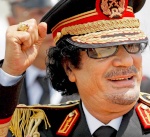
صخور ليبيا-

- الجنس :

عدد المساهمات : 5022
نقاط : 14601
تاريخ التسجيل : 19/09/2011
 رد: ليبيا تحت الوصاية الدولية ليبيا تحت الوصاية الدولية لمن لم يسمع ياهو ليبيا تحت الوصايا الدولية .......
رد: ليبيا تحت الوصاية الدولية ليبيا تحت الوصاية الدولية لمن لم يسمع ياهو ليبيا تحت الوصايا الدولية .......
هذا شئ متوقع منذ البدء وهذا ما كان يسعى اليه الغرب واذيالهم ادخال ليبيا تحت الوصاية لانهم من الاول عارفين ليبيا ميقدرش اى شخص يحكمها
سيناريو قديم جديد
سيناريو قديم جديد

teto-

- الجنس :

عدد المساهمات : 5052
نقاط : 14435
تاريخ التسجيل : 06/09/2011
صفحة 1 من اصل 1
صلاحيات هذا المنتدى:
لاتستطيع الرد على المواضيع في هذا المنتدى

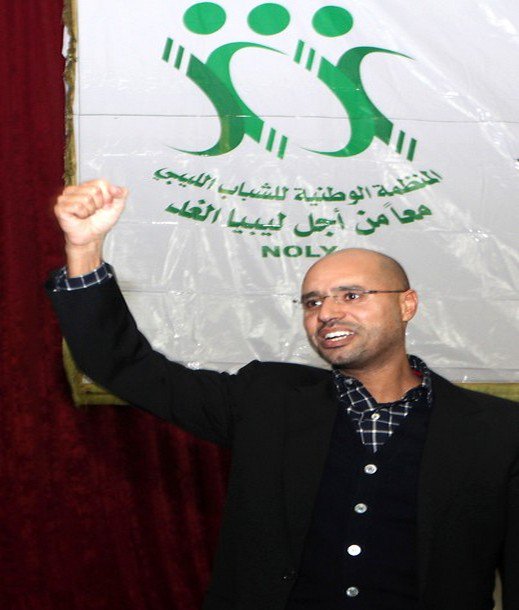
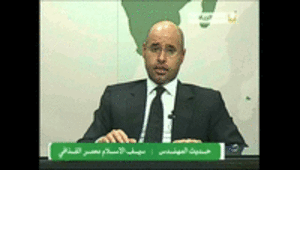



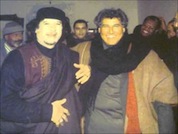
» أحلاس الصّهينة
» النفير المقدس
» الى شيوخ ومثقفي الخليج
» .سجل حضورك ... بصورة تعز عليك ... للبطل الشهيد القائد معمر القذافي
» أملٌ زمنَ القهر
» أملٌ زمنَ القهر
» عملاق الردى
» إجرام الغرب
» فضبدة الخذلان
» شرف المقاومة
» زمرة العز في زمن الهوان
» دليل التّردِّي
» الخذلان المذل
» أحرارُ الخَلَف
» وثبة الابطال في اليمن
» هان العرب
» الى ابي عبيدة
» الى ابي عبيدة
» شعب الاباء في غزة